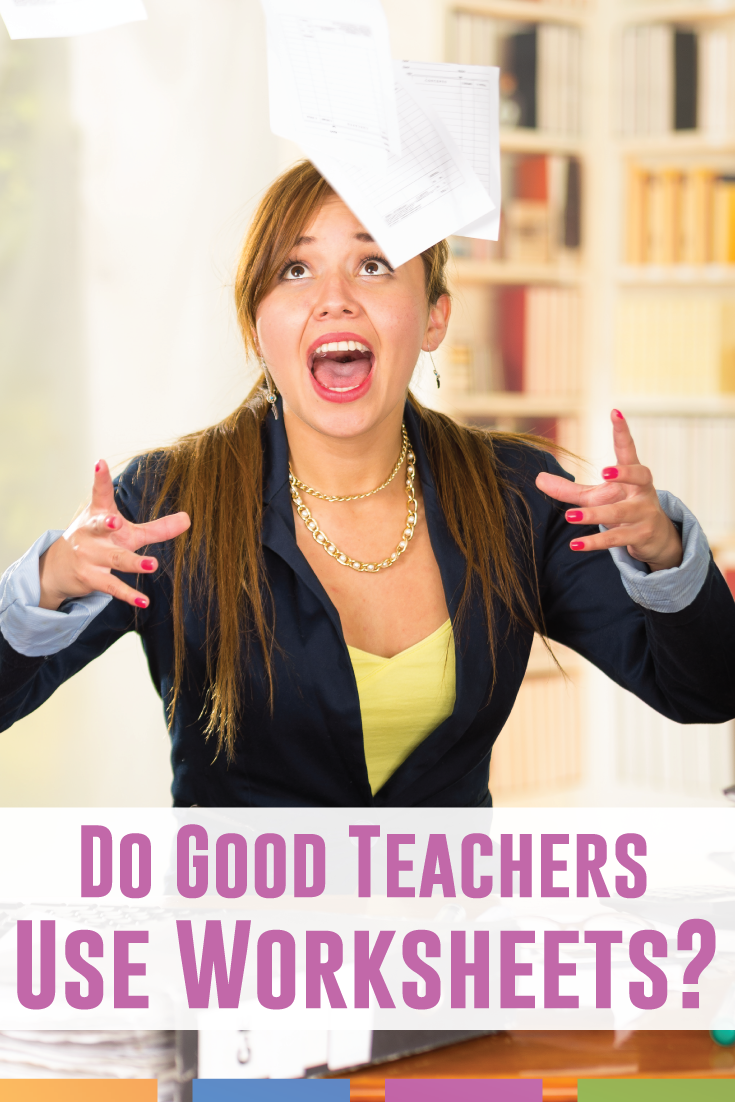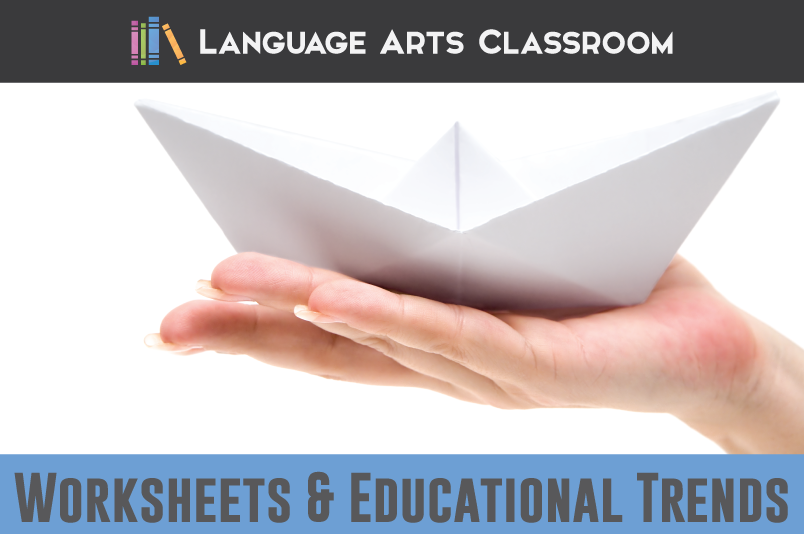Use a worksheet as a teacher? I do.
Teachers, they get bombarded with messages, with trends. Education faces waves of best practices, of new ideas, fresh implementations.
Without thinking for more than five minutes, I can recall these waves in education from my ten years in the field:
- Different intelligences: cover all of them in every unit!
- Tracking, not tracking: has this cycle stopped?
- Timed math/ spelling/ reading: beneficial, hurtful.
- Good teachers don’t use the textbook: toss it!
And I’m not saying that we haven’t emerged stronger from experiencing these waves. And change isn’t automatically bad. And many practices have positives and negatives.
It’s the extremity of these trends. The never and the I’m above that. The most current?
I never allow a worksheet in my class. I refuse to give a student a worksheet. Worksheets? Not here.
Worksheets are not inherently evil. Handing students a worksheet, returning to your desk, making students be quiet as they work though the worksheet, collecting it, grading and returning it with no interaction? Yes, terrible practice. (That is boring too, for everyone involved.)

When I use a worksheet, it is not the only vehicle of information or the only method of practice. (Should one way ever be the only method of anything?)
Still, teachers use a worksheet despite the “never” messages from colleagues and bloggers. It makes for cute headlines of a blog post. Is the extreme of never using a blog post fair, or even true? When we teachers take part in these extremes, we might build ourselves up as superior, but we should be sure we are adding value and being truthful.
Here are three reasons you are not a bad teacher if you use a worksheet.
Define “worksheet.”
The dictionary defines “worksheet” as a sheet of paper on which work schedules, working time, special instructions, etc., are recorded. I will always give my students special instructions and guidelines, which means I am giving them a worksheet. Is a note-taking sheet a worksheet? What about practice sentences? A digital sheet where students can explore the web and add to their ideas? The blanket “worksheets are bad” generalizes much of what teachers use as instructional materials, which leads to. . .
Anything can be “bad.”
If I give my students task cards and don’t allow them to interact with their peers for completing the tasks, that is not best practices. If I show a TED talk and connect none of it class content or student lives, that is poor practice. If I ask students to give a speech, and we never set goals, discuss improvements, or relate the topic to a bigger picture, well, you understand. Any teaching tool can be poorly used. I use a worksheet to give partners starting points for discussions, to provide instructions, to aid in difficult discussions. This leads into. . .
Worksheets clarify difficult concepts.
I always experiment with grammar instruction. I have introduced types of sentences (complex, compound-complex and such) through student writing, through mentor sentences, through created sentences together. I want students to see that they use these sentences already. And? The best way that I’ve found to teach sentence structure is to provide students with definitions. Yep. I hand them a worksheet. Then, we discuss the concepts and move onto other activities.
Don’t quote me as saying that new practices or ideas hurt education, because I’m not. We should grow, we should experiment, we should fail and regroup.
What if we alienated fewer teachers, what if we told fewer that they were bad teachers because they used a worksheet, when that does not define bad teachers at all?
Do you use a worksheet in your classes? This does not automatically label you as a bad teacher.
As a teacher with decades of experience, I’m glad I began my teaching career before social media. Just remember: edu-celebrities might not be in the classroom, and they might not be honest about what actually happens in their classroom. You are not a bad teacher if you use a worksheet.
What do you think?

